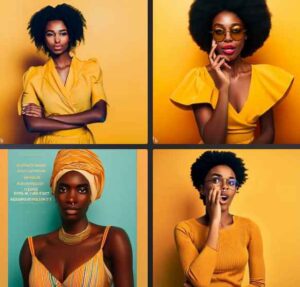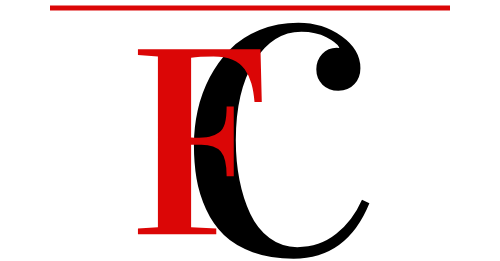So, you’re interested in becoming a model in the ever-growing Nigerian fashion industry? Good news – this comprehensive guide will provide you with all the information you need to embark on this exciting journey. From finding your unique look to signing with an agency, we’ll cover everything you need to know to make your dreams a reality. Let’s get started!
Types of Nigerian Fashion Models
Before diving into the world of modeling, it’s essential to understand the different types of models in the Nigerian fashion industry. Here are four main categories:
- Runway Models: These models strut their stuff on the catwalk during fashion shows, showcasing designers’ collections. Runway models typically have specific height and body measurement requirements.
- Editorial Models: Editorial models are featured in high-fashion magazines and publications. They often work with top photographers and creative directors to create visually stunning images.
- Commercial Models: Commercial models work in various media, including television, print ads, and online campaigns. They often have a more relatable, everyday look compared to the runway and editorial models.
- Plus-Size Models: As the fashion industry becomes more inclusive, plus-size models are increasingly in demand. They represent a diverse range of body types and sizes, promoting body positivity and inclusivity.
Developing Your Unique Look
To stand out in the Nigerian fashion industry, you’ll need to develop a unique and captivating look. Here’s how:
- Discovering Your Style: Find your personal style by experimenting with different fashion trends, colors, and accessories. Your style should reflect your personality and make you feel confident.
- Grooming and Skincare: Maintain a proper grooming routine, including regular haircuts and skincare practices. A clean, polished appearance is essential in the fashion industry.
- Fitness and Diet: A healthy diet and regular exercise will help you maintain your physique and overall health, ensuring you’re always ready for a photo shoot or runway show.
Creating a Portfolio
A strong portfolio is crucial for showcasing your talents as a model. Follow these steps to create an impressive portfolio:
- Hiring a Professional Photographer: Work with a skilled photographer who understands your goals and can capture your best angles. They’ll help you create high-quality images that highlight your unique look and versatility.
- Selecting the Best Photos: Your portfolio should include a variety of images, showcasing different looks, styles, and poses. Choose your best photos, prioritizing quality over quantity.
- Printing and Digital Portfolios: Both printed and digital portfolios are essential in the modeling industry. A printed portfolio should be well-organized and professional, while a digital portfolio can be easily shared via email or social media, allowing you to reach a wider audience.
Finding an Agency
A reputable modeling agency can provide guidance, support, and job opportunities to help launch your career. Here’s how to find the perfect agency for you:
- Researching Reputable Agencies: Investigate potential agencies by checking their client lists, success stories, and online reviews. Focus on agencies with a strong presence in the Nigerian fashion industry.
- Preparing for Agency Interviews: Before meeting with agencies, practice answering common interview questions and work on your walk and poses. Dress appropriately and bring your portfolio to showcase your work.
- Signing a Contract: Once you find an agency that aligns with your goals, review the contract carefully before signing. Make sure you understand the terms and expectations and consult a lawyer if needed.
Networking in the Industry
Building connections in the Nigerian fashion industry can open doors to new opportunities. Here’s how to expand your network:
- Attending Fashion Events: Participate in fashion shows, industry parties, and networking events to meet designers, photographers, and other models. These connections can lead to future collaborations and job opportunities.
- Connecting on Social Media: Use social media platforms like Instagram, Facebook, and Twitter to showcase your work and connect with industry professionals. Engage with their content and share your experiences to build relationships.
- Building Relationships with Designers and Photographers: Forming strong bonds with designers and photographers can lead to ongoing partnerships, referrals, and a growing reputation in the industry.
Continuously Learning and Improving
To stay competitive and successful in the Nigerian fashion industry, you must constantly learn and evolve. Here’s how:
- Attending Workshops and Classes: Enroll in modeling workshops and classes to hone your skills, learn new techniques, and stay updated on industry trends.
- Staying Updated on Fashion Trends: Follow fashion news, blogs, and social media accounts to keep up with the latest trends, styles, and designers.
- Developing Your Brand: As your career progresses, work on developing your personal brand. This includes your image, values, and unique selling points that set you apart from other models.
Conclusion
Becoming a model in the Nigerian fashion industry is an exciting and rewarding journey. By following the steps outlined in this guide, you’ll be well on your way to achieving your modeling dreams. Remember to stay persistent, continuously learn, and never give up on your passion.
ALSO SEE: How Can the Fashion Industry in Nigeria Be Improved?

FAQs
-
How can I prepare for my first photoshoot?
Practice poses, research the photographer’s style, and make sure you get a good night’s sleep before the shoot. Communicate with the photographer and team to ensure everyone is on the same page.
-
Is it necessary to have a modeling agency?
While not strictly necessary, an agency can provide valuable guidance, support, and job opportunities to help launch your modeling career.
-
Can I become a model if I don’t meet the typical height requirements?
Yes, the modeling industry is becoming more diverse and inclusive. Although some categories have specific height requirements, there are still opportunities for models of all sizes.
-
What should I wear to a modeling agency interview?
Opt for simple, form-fitting clothing that showcases your physique, such as jeans and a plain t-shirt. Minimal makeup and natural hair styling are preferred.
-
How do I handle rejection in the modeling industry?
Rejection is a part of the modeling industry. Stay positive, learn from your experiences, and continue to improve your skills. Persistence is key to success.

Leave a Reply